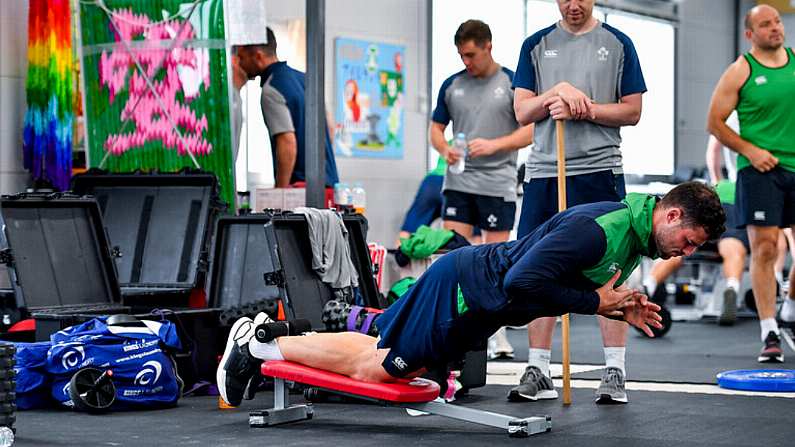No-one is going to castigate you for taking your exercise or gym programmes seriously, but taking anything to an excessive level is never healthy and may even be dangerous. What's even more worrying is that sometimes you're not even aware of how much your new regime is encroaching on your life.
Whether you're trying to trim down or bulk up, the goals you set for yourself should never dominate your life.
Unsurprisingly, the prevailing stigma dictates that personal issues with body weight and compulsive exercise, is strictly exclusive to women. New research however, has shattered those misconceptions.
One in 10 eating disorder sufferers are male and a number of male celebrities including Kings Of Leon front man Caleb Followill and actor Denis Quaid have spoken openly about their personal battles with the attainment of the perfect body shape.
Followill performed numerous push-ups and often ran long distances on hot days while wearing heavy clothing. Quaid's issues with over-exercising date back to the 90's when he was required to lose a certain amount of weight for a part he was playing in a film. His condition deteriorated to the point where he couldn't pull himself out of the pool due to his obsession with burning off all the calories he consumed.
The term 'exercise addiction' is not a new phenomenon and every athlete is susceptible to it. Here are some of the danger signs to watch for that you be getting addicted to exercise.
Low Mood When Unable To Exercise
You need to be able to distinguish between passion and compulsion. You often hear athletes talking about how sport is an addiction for them, but that doesn't automatically imply that they have an unhealthy relationship with it. If their training provokes happy emotions, then this is classed as a 'positive addiction.'
Sport does not define them and during times of injury, they can accept the need to withdraw from exercise until fully fit again.
Conversely, if exercise - or the inability to exercise- causes distress, irritability or feelings of restlessness, then it could be a sign that you are over exercising.
Exercise Dependency
There are two types of exercise dependency. Secondary ED is the one that is most synonymous with eating disorders. The purpose of their exercise programme is for body shape which is normally caused by some trauma in their lives. Primary ED refers to the heightened addictive element associated with exercise and during times of extended rest, the void caused by the absence of exercise causes feelings of depression.
Progress Determines Your Happiness
It's not uncommon to hear exercise enthusiasts boasting about their 'gains' or how they recently cut two seconds off their personal best. These comments are normally traded in good spirits but for others, meeting and exceeding those targets inhibits their everyday life.
Achieving goals is obviously an integral part of your workout regime but if failure to reach them is causing unhappiness and consuming your thoughts, your association with fitness could be degenerating to dangerous levels.
Adverse Effects On Relationships With Friends And Family
People who prioritise their obligations to gym programmes ahead of their appointments with friends and family are in critical danger of becoming a victim of exercise as opposed to someone who enjoys it.
Confrontation normally arises when loved ones try to raise concerns and the afflicted athlete may start ignoring anyone who questions their exercise patterns.
Training While Injured
People who continue training despite an injury can often be confused with the player on the pitch who won't be substituted after taking a hit. The latter example is someone who is exclusively driven by the prospect of success rather than a compulsion to work out.
The former however, refuses to stop training because of an unhealthy attachment to their regime. They can comprehend the importance of rest as a means of promoting recovery from injury, but can't physically indulge in taking a few days off from the gym.
Forcing A Gym Session Into Your Routine
Athletes who excessively exercise will make time for a trip to the gym, even if there isn't any room for it in their diary. Realistically, you need at least an hour to complete your routine at the gym and leave enough time to shower after but those with an addiction to exercise will squeeze in a trip to the gym any chance they get, even if it means they arrive late for a subsequent appointment.
Exercise Intentions
People who have worrying issues with over exercising will regularly do more in a session than they need to. The well established fitness mantra of 'just one more' gets contaminated in this case, and that extra mile or weights rep soon becomes two or three or four.
If your trainer prepares a fitness programme for you, you should follow it. They are the expert and they have a more accurate gauge of what your body can take.
Deviating from the plan and adding those extra sets won't deliver the results you want any quicker. If anything you could be inheriting a number of side effects including fatigue, decreased focus and concentration, and stiffness of the joints.












